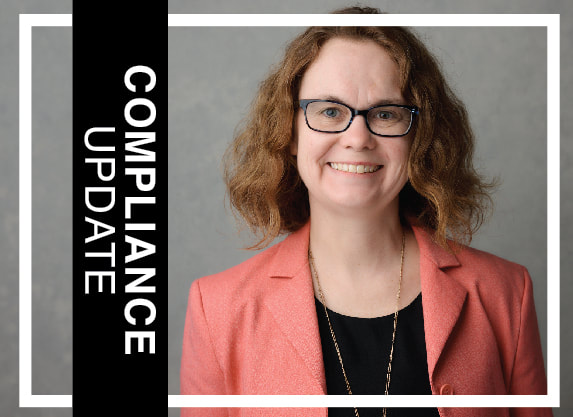|
by Amy Kleinschmit, Chief Compliance Officer
NCUA Reg Alert on HMDA The National Credit Union Administration (NCUA) has issued a Regulatory Alert (23-RA-01) regarding the Home Mortgage Disclosure Act (HMDA) closed-end threshold, which can be found here. As you may recall, the United States District Court for the District of Columbia issued an order last year vacating the portion of the Consumer Financial Protection Bureau’s 2020 HMDA Final Rule. The decision resulted in the threshold for reporting data on closed-end mortgage loans to be reduced to 25 loans in each of the two preceding calendar years, rather than the 100 loan threshold set by the 2020 HMDA Final Rule. In this regulatory alert NCUA states, “The NCUA will not initiate enforcement actions or cite HMDA violations for failures to report closed-end mortgage loan data collected in 2022, 2021, or 2020 for credit unions that meet Regulation C’s other coverage requirements and originated at least 25 closed-end mortgage loans in each of the two preceding calendar years but fewer than 100 closed-end mortgage loans in either or both of the two preceding calendar years.” NCUA – Updated FAQs on CECL and Simplified CECL Tool The NCUA also recently issued updates to its CECL FAQs to address some common credit union topics such as: CECL implementation date for supervisory committee audits and agreed-upon procedures engagements; precedents for establishing a fiscal year to be other than a calendar year; day-one adjustment to undivided earnings; and allowance for loan and lease losses for credit unions with assets of less than $10 million. Updated FAQs for the Simplified CECL Tool address: Monthly use of the CECL Tool; Negative loss rates; Loans to be individually evaluated; Qualitative adjustments for current year loss trends; participations and indirect loan programs; and larger credit unions using the CECL Tool. These updated FAQs, along with the latest version of the CECL tool and other CECL resources from NCUA can be found here. TCPA Rules – Compliance Date The Federal Communications Commission (FCC) issued a public notice announcing the compliance date for Telephone Consumer Protection Act (TCPA) amended rules which were issued back in 2021. This announcement can be found here, and more to the point the compliance date is July 20, 2023. To highlight the portions of 2021 final rule, which implemented section 8 of the Pallone-Thune Telephone Robocall Abuse Criminal Enforcement and Deterrence Act (TRACED Act), and now has a compliance date of July 20, 2023 –
Letter to Credit Unions – CUSOs The NCUA recently issued Letter to Credit Unions 23-CU-02, which can be found here, to discuss the expansion of permissible Credit Union Service Organizations (CUSO) activities under the 2021 rulemaking and associated risks. The final rule expanded the list of permissible activities and services for CUSOs to include originating any type of loan that a federal credit union may originate, including auto loans, leases, payday alternative loans, and other unsecured consumer loans. The 2021 rule also granted the NCUA additional flexibility to approve permissible activities and services. The NCUA has established a CUSO Activities page on its website where it will post any new activities approved beyond those listed in the current rule. The NCUA issued guidance, which was included with the Letter to Credit Unions, to remind credit unions of the expanded opportunities to work with CUSOs and to address some of the primary related risks. InfoSight Highlight - Elder/Vulnerable Adult Protections Credit unions are in a unique position to detect and prevent financial abuse for their elder and vulnerable members. Below are some valuable resources. InfoSight’s compliance topic Elder/Vulnerable Adult Protections provides guidance on the types of financial exploitation and scams that are currently active, the role of credit union staff, management and board of directors, provides guidelines for a credit union to consider if fraud is suspected, and also addresses loss prevention and security. CU PolicyPro’s Model Policy 2245: Protecting the Elderly and Vulnerable from Fraud, can be used to adopt guidelines for the credit union to consider when implementing their program and related procedures to protect members. As always, DakCU members may contact Amy Kleinschmit with any compliance related questions. Comments are closed.
|
The MemoThe Memo is DakCU's newsletter that keeps Want the Memo delivered straight to your inbox?
Archives
July 2024
Categories
All
|
|
Copyright Dakota Credit Union Association. All Rights Reserved.
2005 N Kavaney Dr - Suite 201 | Bismarck, North Dakota 58501 Phone: 800-279-6328 | [email protected] | sitemap | privacy policy |





